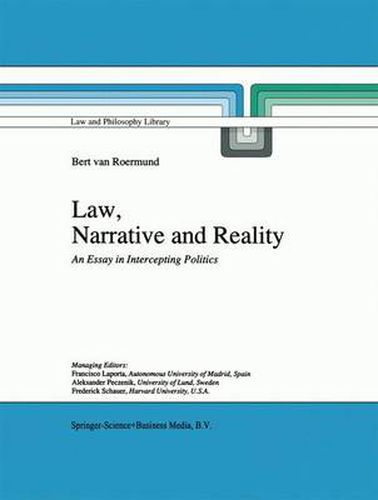Readings Newsletter
Become a Readings Member to make your shopping experience even easier.
Sign in or sign up for free!
You’re not far away from qualifying for FREE standard shipping within Australia
You’ve qualified for FREE standard shipping within Australia
The cart is loading…






This title is printed to order. This book may have been self-published. If so, we cannot guarantee the quality of the content. In the main most books will have gone through the editing process however some may not. We therefore suggest that you be aware of this before ordering this book. If in doubt check either the author or publisher’s details as we are unable to accept any returns unless they are faulty. Please contact us if you have any questions.
This book is at odds with the presuppositions behind a received view on law as a systematic solution to social problems in the name of justice. It argues that neither do facts in law represent social reality, nor do norms represent a moral ideal. Representationalism as such, in its various legal guises, is put to the test of what is called here ‘the interception hypothesis’. Although it is derived from the theory of literature (the theory of narrative) and corroborated by several close reading analyses of legal texts (both decisions and statutory rules), this hypothesis aims, in the first part, at providing an alternative model for the structure and the value of legal knowledge. The second part shows how this knowledge is operative in fundamental concepts like democracy, punishment and (contractual) obligation.
$9.00 standard shipping within Australia
FREE standard shipping within Australia for orders over $100.00
Express & International shipping calculated at checkout
Stock availability can be subject to change without notice. We recommend calling the shop or contacting our online team to check availability of low stock items. Please see our Shopping Online page for more details.
This title is printed to order. This book may have been self-published. If so, we cannot guarantee the quality of the content. In the main most books will have gone through the editing process however some may not. We therefore suggest that you be aware of this before ordering this book. If in doubt check either the author or publisher’s details as we are unable to accept any returns unless they are faulty. Please contact us if you have any questions.
This book is at odds with the presuppositions behind a received view on law as a systematic solution to social problems in the name of justice. It argues that neither do facts in law represent social reality, nor do norms represent a moral ideal. Representationalism as such, in its various legal guises, is put to the test of what is called here ‘the interception hypothesis’. Although it is derived from the theory of literature (the theory of narrative) and corroborated by several close reading analyses of legal texts (both decisions and statutory rules), this hypothesis aims, in the first part, at providing an alternative model for the structure and the value of legal knowledge. The second part shows how this knowledge is operative in fundamental concepts like democracy, punishment and (contractual) obligation.